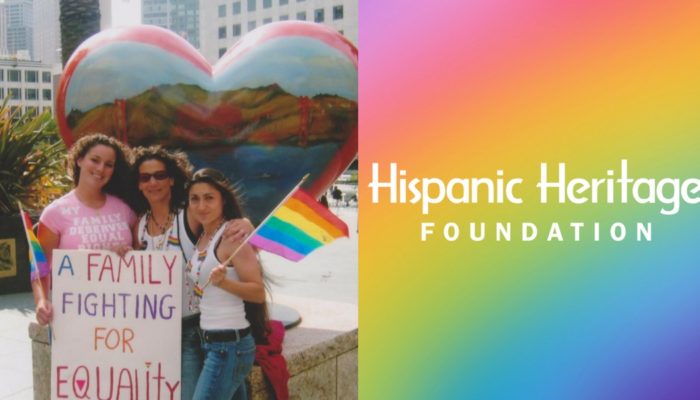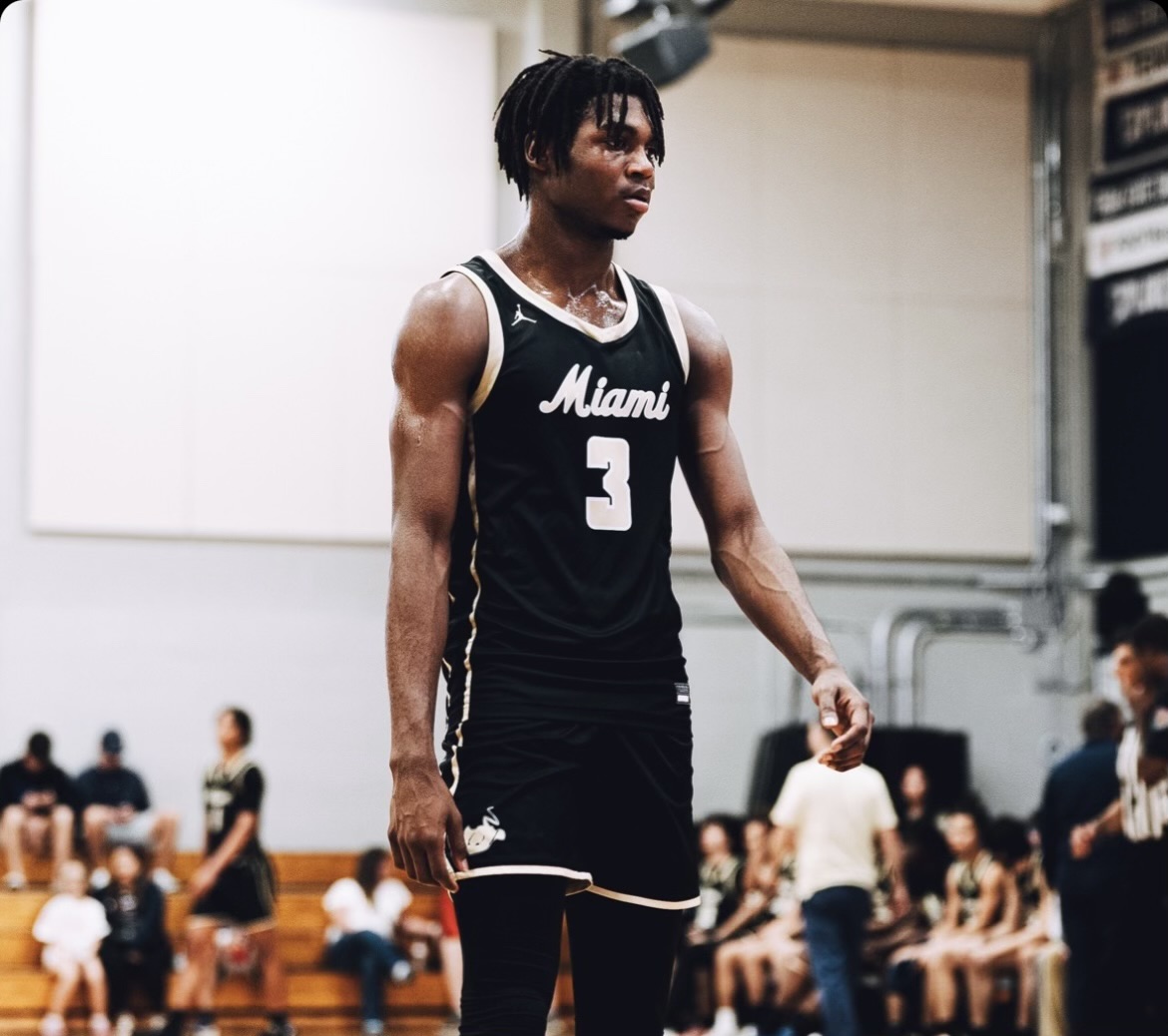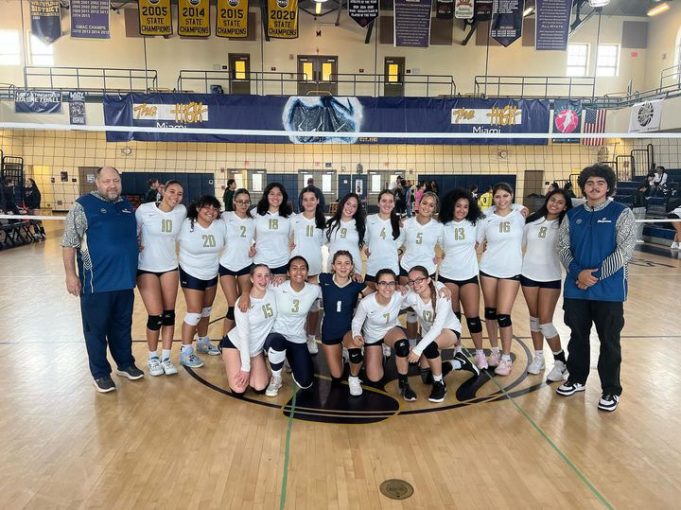LGBTQ Living in Hispanic Households
April 5, 2023
Living in a Hispanic household as an LGBTQ+ person can be difficult for some while not as much for others.
Growing Up
One female 10th grader, who identifies as bisexual, says that growing up Hispanic and LGBTQ can be a different experience for everyone depending on what country or culture they are from. She said she grew up in a Catholic Dominican household. She talked about how growing up she felt sort of ‘trapped’ in herself. “I felt like even though I could’ve received support, I still had to hide because of the prejudices that my parents had against LGBTQ,” she said.
Another student, a 10th grade male, mentioned how he didn’t really “grow up” gay. He said that while growing up, he always felt different from other boys and the way he felt towards them. He talked about how he never really realized the clear signs until now. “Ever since I can remember I don’t think I’ve ever had a crush on any girl,” he said. “I never really thought much of it, so I dismissed it. I would do the same whenever I’d feel a certain way about a guy.”
He said he grew up with a single mom and his siblings. He mentioned how he never felt like his mom would not accept him, as she seems very open about stuff like this. He has not yet told her, but he definitely feels like when the time comes, he will be accepted by her.
Safe Spaces
Another 11th grade female student who identifies as pansexual was asked if she felt like she had anyone she could talk about it with that would understand her and she mentioned her cousin. “He is one of the first people I had already told, and it helped me understand myself a bit more and be OK with my own feelings,” she said.
They both grew up relating to each other in how they felt and how none of their parents knew about their sexualities. “He is older than me,” she said, “so I’m mainly the one that goes for him when I’m in need of advice.”
On the other hand, bisexual male student, F.M., mentioned how he didn’t really have anyone to go to for these types of things in his family. He said, “I don’t really have anyone to talk to about stuff like this like when I’m having relationship issues or feel bad about something because I have not told my family yet.”
While some kids pay no mind to whether their parents know or not, for others it can be something very difficult to keep hidden. For kids who tell everything to their parents, not being able to talk about this can take a toll on them.
When growing up, kids should feel safe enough to tell their parents about their personal life. When they cannot, it can lead to a decrease in their mental health or even affecting their relationships with their parents.
According to the article “Parents’ influence on lesbian, gay, or bisexual teens,” posted on the website for the US Centers For Disease Control <https://www.cdc.gov/healthyyouth/protective/factsheets/parents_influence_lgb.htm.>, “When LGBT teens share their sexual orientation (or even if they choose not to share it), they may feel rejected by important people in their lives, including their parents. This rejection can negatively influence an LGBT teen’s overall well-being.”
Living Closeted
As someone who grew up living these experiences, I can say it wasn’t something easy to deal with. This opinion is shared by one gay freshman male who says, “Since it was only my sister who I felt like I could talk to, I felt alone a lot of the times since she was older and didn’t live with me anymore. I felt like it was a mistake being LGBT.”
Similarly, a female junior mentioned earlier in the story said that while growing up she felt as though it was wrong to be LGBTQ and that she should not be feeling this way. “Not only is it important to acknowledge certain feelings, it’s important to acknowledge how you feel towards yourself in situations like this. I never really fully realized I was LGBT until I was a bit older, so I was always confused as to what these certain feelings were,” she said.
While many people feel this same isolation, others definitely had it easier. “I never really minded not being able to tell anyone about how I felt since it wasn’t anything that would affect me as much,” mentioned one bisexual sophomore male.
Acceptance
There has to come a time where you have to fully realize your potential and be at peace with who you are, no matter what your sexual preference is. Growing up LGBT can be something hard to manage, or for others it can be like any other thing in life. A female sophomore mentioned earlier in the story said that she feels like not being able to talk to her mom about her romantic experiences being with women is one of the hardest things considering she tells her everything. “Along with that, I find it hard having to stay quiet about any bad comments my family makes about LGBT out of fear of them finding out,” she said.
A male student, mentioned earlier in the story, stated how he wishes that people can understand that LGBT kids aren’t “confused.” He wants them to know that you can come to terms with your sexuality at a young age, “which is something that’s not easy if you grow up getting told negative things on this topic,” he says.
This opinion is widely shared by many young LGTBQ+ kids who realized how they truly felt from a young age. LGBT students at Miami High share this feeling too and would like to add that there’s so many misconceptions surrounding the community, but that they should never judge a book by its cover.
Want to know more about LGBTQ+ Hispanic lifestyles?
TV Shows
- Love, Victor
- One Day at a Time
- Vida
Books
- Juliet Takes a Breath by Gabby Rivera
- Loving In the War Years by Cherrie Moraga
- Esperanza Rising by Pam Munoz Ryan






Ray Garcia • Apr 10, 2023 at 10:50 am
WOWWWWWW THIS IS SO LGBT SUPPORT!!! ALLYYYY!!!